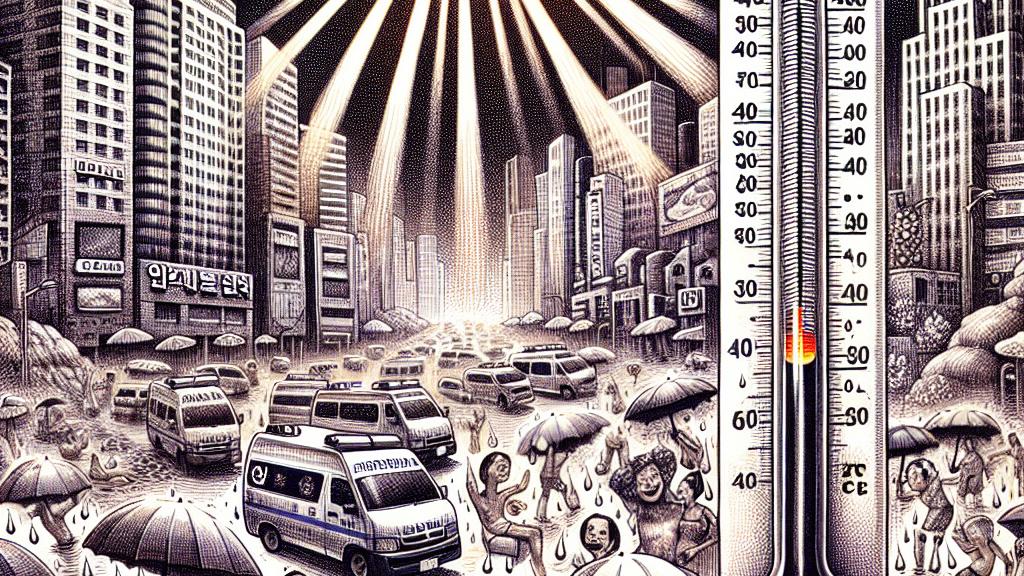Scorching Summer: South Korea Under Record Heat
Overview
- South Korea faces an extreme summer heatwave, with temperatures exceeding 40 deg C, threatening public health and safety.
- The World Scout Jamboree is marred by health crises, with hundreds of teens suffering from heat-related illnesses amidst a poorly managed environment.
- The agricultural sector is severely affected, as livestock deaths reach alarming numbers, pushing farmers to adopt innovative climate adaptation strategies.

Extreme Weather Conditions Challenge South Korea
This summer, South Korea is experiencing one of its most extreme heatwaves on record, with temperatures soaring over 40 degrees Celsius in areas like Yeoju. Following the end of the monsoon season, the Korea Meteorological Administration has issued widespread heat advisories, warning citizens about the health risks associated with prolonged exposure to such scorching temperatures. With public health officials already reporting heat-related fatalities and thousands seeking medical attention, the crisis has forced emergency services to activate contingency plans to ensure residents can access cooling resources and medical support.
World Scout Jamboree Faces Health Emergencies
During this critical heatwave, the World Scout Jamboree in Saemangeum is struggling to manage attendee health. The event, which has drawn nearly 40,000 participants from around the globe, has seen over 1,400 individuals requiring medical assistance, primarily for heat-related illnesses, skin rashes, and other ailments exacerbated by inadequate living conditions. Parents of attendees have raised alarms on social media, demanding action from organizers, especially regarding the lack of proper shelters, cooling stations, and adequate food supplies. In light of these issues, many UK scouts have been relocated to hotels as a precautionary measure, revealing significant logistical failures in event planning.
Agricultural Sector Grapples with Livestock Losses
The ongoing heatwave is also wreaking havoc on South Korea's agricultural sector, particularly affecting the livestock industry. Reports estimate that around 260,000 livestock have perished due to extreme conditions, prompting farmers to call for urgent action to protect their herds. As the heat continues to rise, many are exploring sustainable practices like silvopasture, which involves planting trees in grazing areas to provide shade and enhance soil health. This shift towards innovative agricultural techniques reflects a growing recognition of the need for climate resilience as farmers confront the growing challenges posed by extreme weather and changing climate patterns.

Loading...